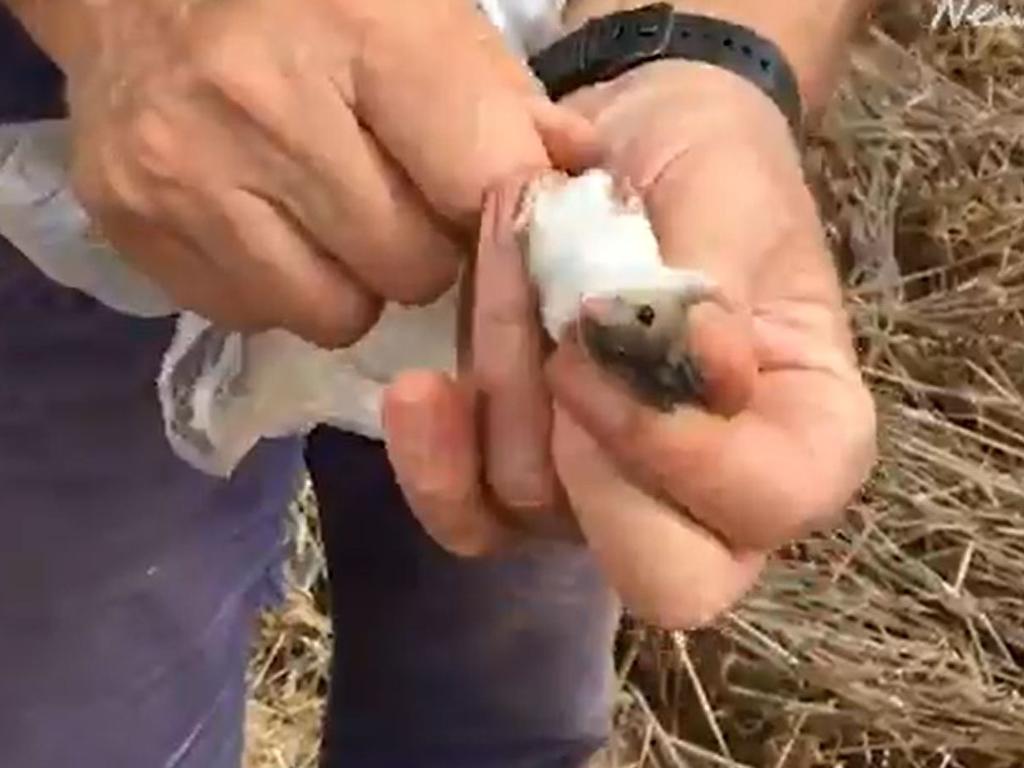‘They showed up out of nowhere’: mouse plague hits parts of NSW, Qld, SA and Victoria
A mouse plague has infected parts of eastern Australia with a mayor from one town saying ‘hundreds of thousands’ showed up ‘out of nowhere’.
Huge amounts of mice have infested rural NSW and parts of other states, making their way into people’s homes and threatening to ruin crops.
Heavy rainfall has meant good breeding conditions for mice, an expert from CSIRO said.
The rodents have kept multiplying through the summer, and are expected to continue to do so even through the winter, potentially threatening crops.
Videos from central NSW show incredible amounts of mice running around.
One video from a road east of the town Warren shows hundreds of mice crossing the asphalt in the dark.
Check out the mice at Collie! East of Warren. @ABCRural
— Hugh Hogan (@Hughiehogan) February 1, 2021
Video courtesy of @harry_gaynor pic.twitter.com/pLwkfTpODW
“They showed up from nowhere,” said Al Karanouh, the mayor of nearby Coonamble.
“Hundreds of thousands of them, invading people's homes and businesses. It’s quite a hard problem getting rid of them all.”
“Obviously they smell when they die, they eat everything in your home, and their droppings are bad, there are big quantities of them.”
CSIRO research officer Steve Henry said there had been recent reports of high mouse populations in central Queensland, all the way down to the NSW Riverina region, and even in parts of Victoria and South Australia.

Mr Henry said the rainfall and good harvest last year contributed to allowing the mice to spike in numbers.
“Mice start breeding when they’re six weeks old, and have a litter every 19 to 20 days after that. They can have up to 10 pups per litter, which means the rate of increase is really dramatic,” he said.
“As soon as they have a litter of pups they fall pregnant again. They gestate the next litter while feeding the previous one.”
Farmers around Coonamble were lucky enough to have harvested before the infestation there began increasing in scale. But there is a risk the mice could continue breeding until autumn and threaten the next crop.

Locals have been putting out bait to try to kill the rodents.
During a previous mouse plague in 1984, a farmer was shown on the evening news using a flamethrower to wipe out mice eating his crops.
But the best hope to get rid of the pests is a cold snap or heavy rainfall, Cr Karanouh said.
“A good cold snap, or lots of rain will do it. All their holes in the ground get filled up and they die,” he said.
Mr Henry said there was another hope as well: when the rodents multiply too quickly, they tend to deplete their food sources and spread disease among each other.
“As the food runs short and disease goes through the population, they start to eat their offspring. That makes the population crash away rapidly,” he said.



